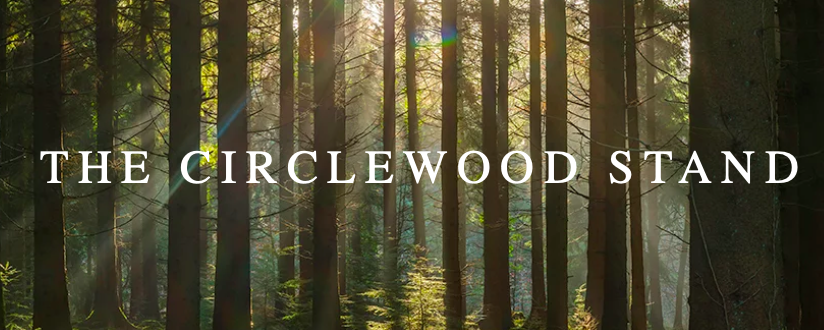I occasionally share resources to help readers in their journey of ecological discipleship. I hope you find something here that helps you!
Something to Read
A book I keep coming back to is Earth Honoring Faith: Religious Ethics in a New Key by Larry Rasmussen, Professor Emeritus of Social Ethics at Union Theological Seminary. This 2014 book won several awards, and for good reason - it is a work of intellectual mastery and spiritual depth, weaving ethics, theology, poetry, history, and personal narrative together into a powerful argument for a new religious and ethical consciousness. The writing is packed full of ideas, but is accessible for readers willing to put in the work. I frequently use this book as a resource for workshops and lectures. Here's a quote that gives a sense of the journey Rasmussen calls us to:
"What is the faith we seek now, for the transitions at hand and for the Great Work of this epoch? The answer begins with questions, questions that take us to more things in heaven and on earth than have inhabited our philosophy up to date. What kind of faith is life-centered, justice-committed, and Earth-honoring, with a moral universe encompassing the whole community of life, the biosphere and atmosphere together as the ecosphere?"
If you need a shorter read, here's a recent article by Dr. Randy Woodley, "How My Indigenous Heritage and Identity Influence My Christian Faith, and Vice Versa." Learning about indigenous histories and from indigenous people like Randy has been important in my faith development. From the article:
"Christianity has, at best, failed miserably in delivering good news to Indigenous people. I understood this concern at a young age, and I have always sought to find a way to enjoy and share my personal love for Jesus as something that lifts up our common values in a non-oppressive, decolonial way. This took a while to learn."
If you are a Circlewood Stand member, you'll want to mark your calendars for our upcoming webinar with Dr. Woodley on Tuesday, April 5 from 7-8pm PDT.
Something to Watch
If you have Netflix, make sure to watch My Octopus Teacher. The documentary captures the relationship between filmmaker Craig Foster and an octopus in a South African kelp forest. I knew I would find it interesting, but I was not prepared for how deeply moved I was by the bond formed between the two, and by the depth of love, loss, and healing that shines through.
If you are looking for something a little shorter, check out Critter Crossings in the Cascades, a 20-minute film documenting the effort to rebuild sections of Interstate 90 near Snoqualmie Pass in Washington State in a way that protects wildlife and sensitive ecological areas. It is an example of how we can undo some of the damage that highway systems have done, and how different constituencies can come together to solve problems creatively. Thanks to subscriber Julie Stapelman for bringing this to my attention.
Something to Think About
This is from climate scientist Katherine Heyhoe's book, Saving Us: A Climate Scientist's Case for Hope and Healing in a Divided World.
“Real hope doesn’t usually come knocking on the door of our brains uninvited. If we want to find it, we have to roll up our sleeves and go out and look for it. If we do, chances are we’ll find it. And then we have to practice it.”
You can also check out this interview with Dr. Heyhoe on our Earthkeepers podcast.
Something to Pray
As we prepare to enter the season of Lent, here is a prayer for Ash Wednesday (March 2) from Diana Butler Bass.
"God, with profound gratitude, I remember that you created humankind from the dirt, by breathing on the clay and giving life. May this Lent be one of thankful remembrance of connection with the earth and your call to care for creation."
Something to Do
PERSONAL: For those of us in the northern hemisphere, spring is nearing. Go for a walk and look for signs of new life. Let the birdsong, buds, melting snow, sound of children playing outside, etc., plant a seed of hope in your soul.
SOCIAL: If you are part of a church, talk to your fellow congregants about ecological discipleship. Consider asking open questions to spark conversation. Where does care for the earth (and all its creatures) fit into your church's theology and priorities? Do you ever hear this perspective in preaching and teaching? How might the church pursue a more wholistic ministry and mission?
POLITICAL: In my quest to learn more about the political aspect of caring for the earth, I have been guided by activist, author, and teacher Bill McKibben. I encourage you to check out his weekly newsletter (I'm a subscriber), which provides helpful updates on the state of the global climate crisis. One thing my family has done as a result of McKibben's writing is move our finances from a large bank that invests heavily in the fossil fuel industry to a regional credit union that does not.
Something for Me?
If you have a resource or two you would like to share, feel free to email me at james.amadon@circlewood.online, or, better yet, share it in the comments section for other readers to see.
With you on the Way,
James
Like what you are reading? Consider joining our supporter community, The Circlewood Stand. Click the image below to learn more.
